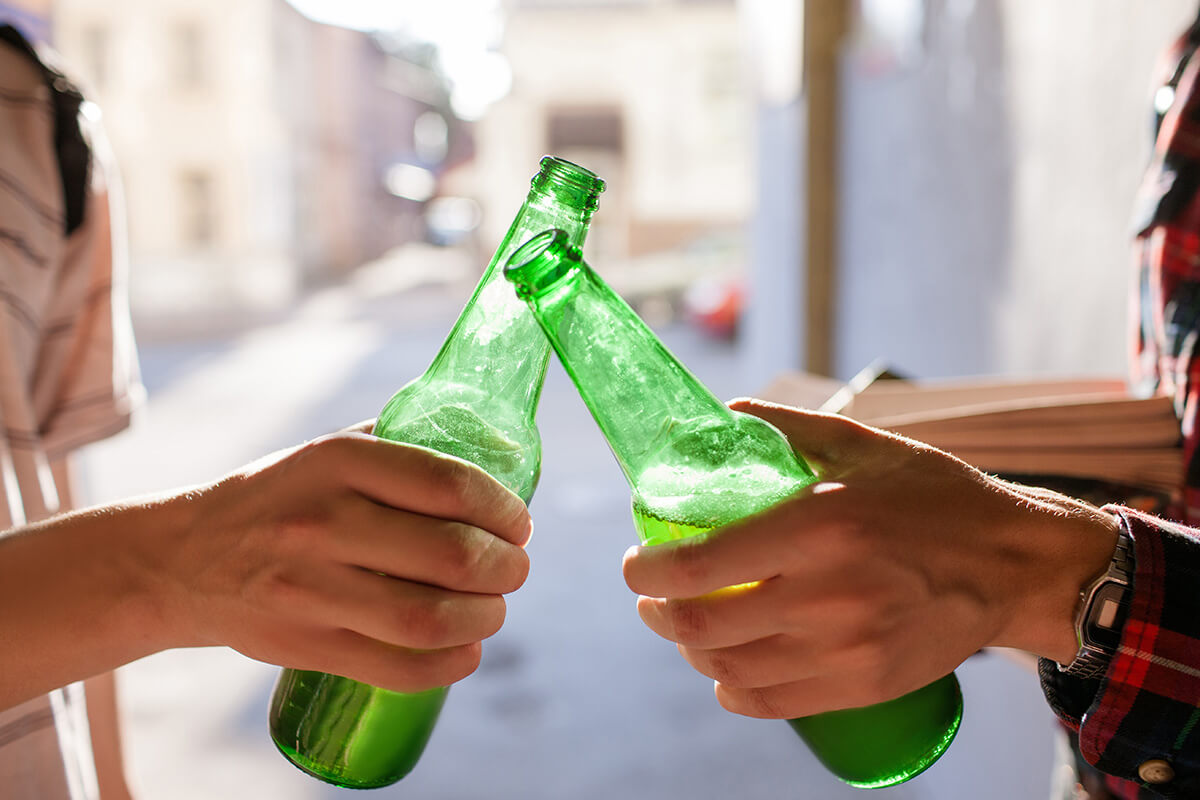There may be a time when the adolescent in your life asks “Is alcohol a drug?” While you may think you know the answer to this question, it always makes sense to educate yourself further so you can give teens the best advice possible. As parents, we always want to give teens the right answer to difficult questions. You likely know that alcohol is a dangerous substance that causes mind-altering effects, but you may have questions about whether or not it falls into the drug category. Without a doubt, it does. Venture Academy has seen what alcohol abuse can do to young people. We strive to give parents and teens a means to overcome substance abuse. One way we do so is by educating individuals about the dangers of drugs and alcohol.
Why Is Alcohol a Drug?
Not only is alcohol a drug, but because of its accessibility, it’s also the most abused drug in the world. Thus, it makes sense to learn just how it affects the brain and body as well as what can be done if alcohol is abused. As long as an individual is over a certain age, he or she can walk into a liquor store and buy alcohol right off the shelf. However, even though the legal drinking age is 18 or 19 depending on the province or territory, many teens start drinking before that.
The problem with teens consuming alcohol is that their brains haven’t fully developed yet. Like many other drugs, alcohol floods the brain with dopamine. Short-term, drinking could make teens feel great. Inhibitions disappear, and this magical elixir makes them feel more outgoing, social, and confident.
The downside is that teens may come to rely on alcohol to feel these emotions consistently. Unfortunately, this can lead to a chaotic downward spiral. Alcohol abuse can impact everyone, but teens are incredibly susceptible.
Regular alcohol abuse alters brain chemistry. It can cause the body to become dependent upon alcohol to function properly. When this happens, an individual has formed a dependency or addiction to alcohol. As a disease, the best way to heal and recover from alcohol addiction is through professional help. Also, this may entail not just physical detox or treatment to overcome alcohol addiction but therapy. Often, many individuals, teens included, turn to alcohol because they have an underlying mental health issue causing them distress. Parents need to be aware of all these aspects so they can help teens get the support they need.
Spotting Signs and Symptoms of Alcohol Abuse in Teens
Now that you know the answer to, “Is alcohol a drug?” Let’s discuss how to spot a potential drinking problem. In order to determine if your child has a drinking problem, pay attention to the following signs:
- Hanging around new friends
- Increased irritability
- Social withdrawal
- Diminishing school performance
- Loss of interest in activities he or she previously enjoyed
If you notice your teen exhibiting any of these signs, it could mean there’s an issue. While your first impulse will be to punish and reprimand your child for his or her behavior, you have to walk a fine line. Approaching the issue in a harsh manner could do more harm than good, potentially leading to resentment and distrust.
It’s important to be supportive and let your child know that you’re there for them.
How Venture Academy Can Help
With three locations throughout Canada, Venture Academy has helped troubled teens overcome a myriad of behaviour issues. During our 30 Day Assessment and Intervention process, our multidisciplinary team will evaluate your child and collaborate with your family to develop the best treatment plan possible. Following the 30-day period, we may recommend that your child seek additional drug and alcohol treatment. Some other therapeutic services we offer include:
It’s not too late to help your son or daughter overcome alcohol abuse. So call Venture Academy today at 866.762.2211 to find out more about our treatment programs.







